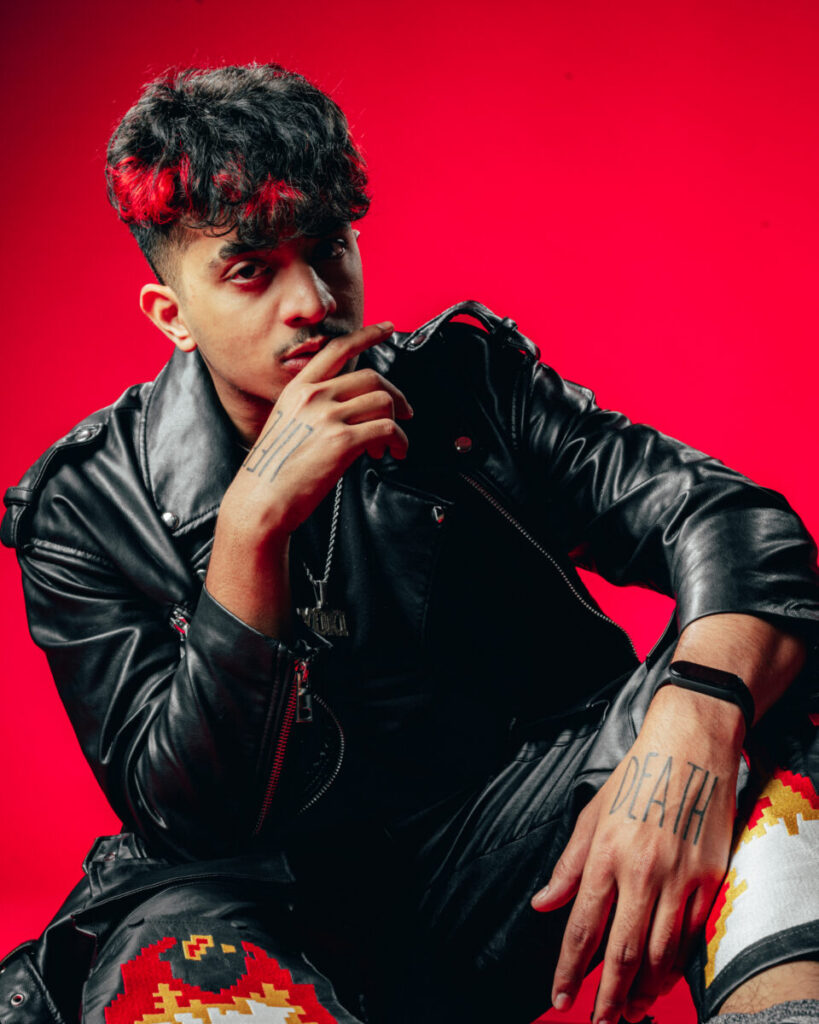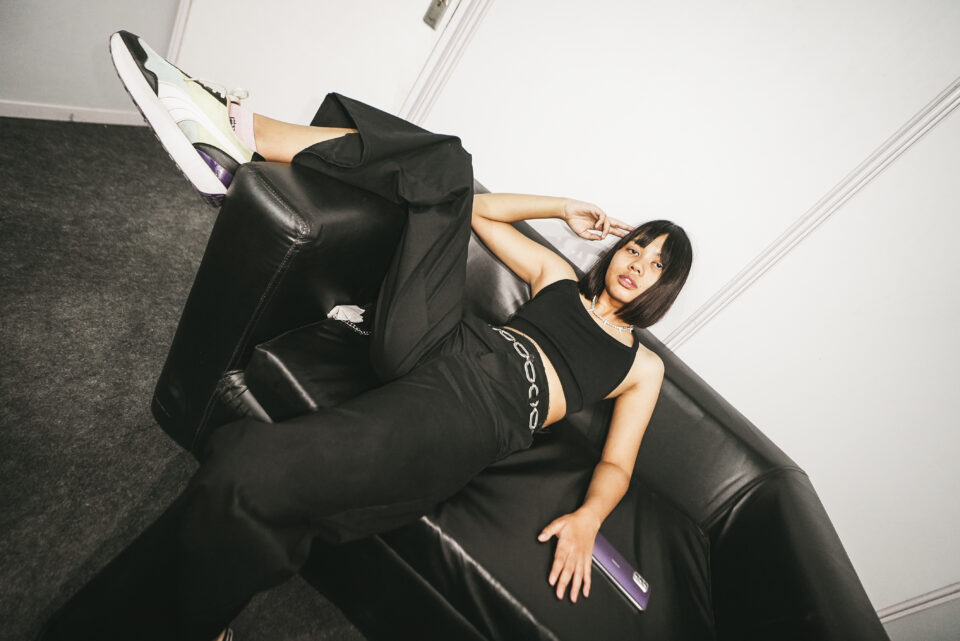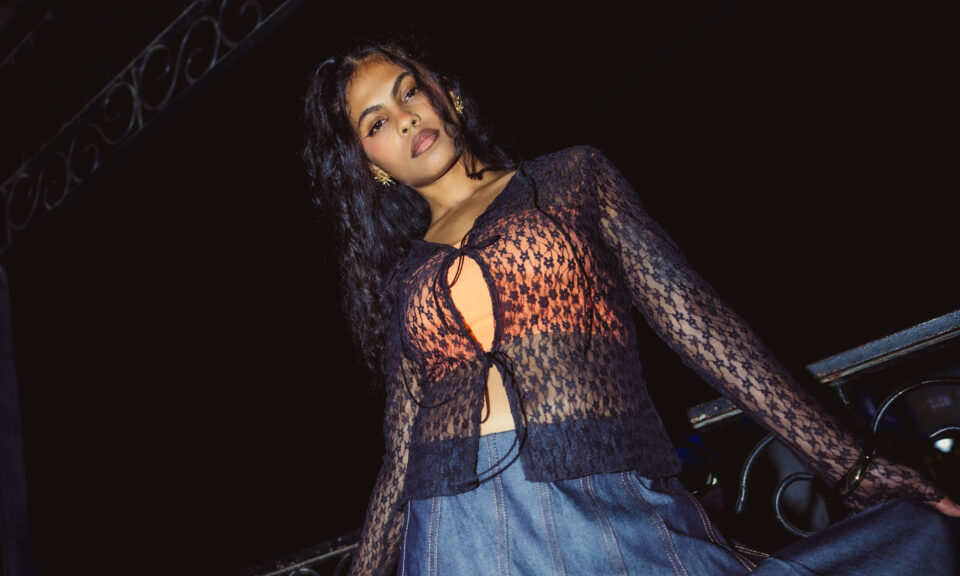Last month, we brought you our Future of Music 2025 list, featuring 25 of the most innovative artists from Australia and New Zealand we expect to achieve big things this year and beyond.
But what about the rest of the world?
Our Rolling Stone partners also compiled their own Future 25 lists as part of our global Future of Music series, including Rolling Stone India.
Find out more about three of their chosen artists – Tsumyoki, Reble, and Mary Ann Alexander – below!
Check out Rolling Stone India’s full Future 25 list here.
Tsumyoki
When Goan hip-hop artist Tsumyoki dropped a snippet for an upcoming song, he put out an open call for a collaboration, asking which desi hip-hop artist would sound good on the track. Fans threw out names and Tsumyoki’s peers also joined in on the action.
Love Music?
Get your daily dose of everything happening in Australian/New Zealand music and globally.
“I approached a lot of rappers before, and the song was just in the vault. About five rappers I approached, they rejected it,” he recalls. But then Haryanvi artist MC Square asked if he could jump on it. “He just gave me his verse and said, ‘Let’s get it, bro.’”
That song went on to become Tsumyoki’s latest banger “Want It All”, out via Divine’s Gully Gang label (who signed him in 2021). Although it might seem like Tsumyoki aka Nathan Mendes is an English rapper in a country that’s completely taken over by rap in several other Indian languages, he’s learned to find his place, even winning the Best Indian Local Act award at the 2023 MTV European Music Awards. From MC Square on “Want It All” to Rawal on “Ek Do Ek”, Seedhe Maut’s Calm and Mumbai rapper Yashraj on “Breakshit!” to Gravity on “Money Dance!” – Tsumyoki’s songs hold space for others.
First language: Tsumyoki says it’s still tough to be taken seriously as an English rapper in India, even when artists like Hanumankind have gone global. “It’s an uphill battle to get streams, get any sort of play listing, any sort of bookings for shows… you’ll get rejected just because your verse is in English.”
It’s a double standard where Indians perceive English music coming from a local artist with less “seriousness,” while international artists pack stadiums. He says, “If Coldplay can sell out and Travis Scott can sell out… is it that when you’re an Indian artist from India, it’s just a different ball game?”
From Goa to the globe: Tsumyoki first commanded Indian hip-hop’s attention with his friends and crewmates in Goa Trap Culture. With Kidd Mange, 2jaym, Elttwo and others, the group’s 2021 album Daboij showcased a refreshing fusion pulled off with elan like few others in the game, especially the hyper energy of emo/pop-punk rap songs like “Jackets”.
He says, “It was just like a bunch of kids having fun, to be honest. We didn’t know the gravity of what we were doing. We didn’t know that it would get this big… It was just something that we did fucking around and messing around, you know?”
Now, the gang’s getting back together, with Daboij 2 in the works. “It’s just been an amazing process to be able to work with my friends this way. It’s just too much fun,” Tsumyoki says excitedly. Where at other times in our chat he’s been more nuanced in his reactions, he promises that Daboij 2 will be “100 times bigger than everything we’ve done.”
Tuning into songcraft: Never one to look back at his work – you can’t ask him to pick his favourite lyric from his catalog, even – Tsumyoki gets bored of going back to listen to his older material. The fans are probably going to keep at it, though, from his genre-hopping experiments with Goa Trap Culture to the openhearted debut album A Message From the Moon in 2023.
His recent EP Housephull doubles down as well, and it’s here that Tsumyoki opens up about how he’s more attached to his production and beats than the lyrics he wrote. He shouts out “Work4Me!” from the EP as a cherished track he produced. “Something about that song takes me back to like 2017-2018 SoundCloud era, when I was really discovering music,” the artist adds.
Between a bit of self-deprecating humour (on uttering a Hindi expletive instead of saying something romantic on “Housephull”), a whole lot of braggadocio and plenty of life stories, there’s a range in Tsumyoki’s writing that makes him ripe for global stardom. He says of his process, “I just play the beat, see what makes me feel. The beat makes me feel emotional, I just write emotional shit. If it makes me want to have fun, I’ll just write fun shit.”
Local scene talk: If it was tough enough to get listeners as an English rap artist, within Goa, there are more hurdles to getting local, on-ground support. He says, “I can’t blame Goa for not listening to rap music. They listen to the music that they like, but the scene here is just very small.” He urges more support for rap music from locals but says he and Goa Trap Culture will push on anyway. “I think one day Goa and India are just going to open their eyes and see what Goa Trap Culture has to bring and it’s going to be a huge realization, like, ‘Why didn’t we check this guy out sooner?”
The future of music: Tsumyoki’s not bothered by AI in music so much, because it can never replicate “personality.” He explains, “That’s what people love the most. They love your music, but if they fall in love with your personality and who you are, that’s how you create a cult following. It’s not just music.”
In the face of it all, his motivation remains personal. He says, “I make music for me and I make beats for me because they make me feel a certain way. So I’ll just keep doing that and keep releasing it. It should work. Good music will win at the end of the day.” —Anurag Tagat
Reble
At 12, Reble put pen to paper for the first time and instantly knew it wasn’t great. But she also knew something more important: she could do better. That instinct – that quiet, internal meter for potential – has stayed with her since. “Every time I wrote something, I’d tell myself, ‘This sucks, but I know I can top it.’ That voice is still there. It keeps pushing me.”
Born and raised in Meghalaya in India’s under-represented Northeast, Reble’s story screams of survival, reinvention, and proving that real talent, even in silence, doesn’t stay hidden forever. A self-described “lame kid” who used to eat lunch alone, she found her first sense of kinship in a voice that blasted through her headphones: Eminem. His song “Beautiful” felt like a hand extended in her direction. “I felt heard,” she says. “I felt like he came from chaos too, and that maybe we weren’t all that different.”
Her foundational trinity – Eminem, Biggie, and André 3000 – shaped Reble’s approach. From Biggie, she learned flow and cadence. From Eminem, the catharsis of lyricism. And from André, the permission to experiment. “He’d rap over a four-by-four beat like it was a playground,” she says. “That was crazy to me.”
Sonic shifts: As her sound evolved, so did her self-awareness. Reble speaks often of her “alter egos,” the shifting inner selves that emerge across different timelines. “We’re not static,” she says. “I might feel one way today and the complete opposite tomorrow. Exploring those shifts – that’s where the magic is.” Her music reflects this flux: never confined to one mood, one persona, or one linear story.
For the culture: For all her complexity, she remains firmly rooted in her identity as a Northeastern artist – and proud of it. “This place raised me. The culture is in me, whether I rap about it or not.” But she’s wary of being boxed in, preferring to be heard on her own merit rather than as a token. “I do feel responsible to represent, but not because someone told me to. It’s just pride. But I also want to be seen as me.”
Talent over optics: Still, she knows the pressure that comes with being a woman in Indian hip-hop. She doesn’t frame it as just a gendered challenge. “It’s not about proving something to men. I want to prove myself to everyone. People don’t understand my potential yet – and that’s frustrating.” Her tone sharpens when she speaks of platforms that amplify women for optics rather than talent. “There’s so much skill out here, but when you put someone on stage just because they’re a woman – and they’re not ready – you ruin the representation. People start thinking women can’t rap. That’s messed up.”
Her thoughts spill quickly, not as rehearsed PR soundbites but as someone who’s been carrying these opinions for a long time. She’s seen too many gifted peers – especially women – get sidelined due to societal norms and lack of access. “I knew a girl who was one of the best lyricists I’ve ever met. But her family didn’t let her pursue it. No one even knows she existed. That haunts me.”
Testing times: Unlike many of her peers, Reble balanced the grind of building a discography with studying civil engineering. While others warned her against the difficulty of science streams and college life, she breezed through it. “Everyone kept saying it was hard, but honestly? It was easy. The only tough part was having a show and an exam on the same day – and picking the exam so I didn’t make my mom sad.”
Ready for all stages: Onstage, she’s still learning to make peace with the spotlight. “I get nervous. I’m not one of those artists pulling in a crowd that’s screaming my name. Most of the time, I’m performing in an early slot to strangers.” But she shows up anyway – despite the nerves, despite the odds. “That takes something,” she says. “You don’t know them, they don’t know you. But you still give them your truth.”
On the map: She refuses to name a favourite track from her catalog – “I’m proud of the recent stuff, but nothing feels like ‘the one’ yet.” That’s because she believes her best work is ahead of her. “My goal is to put out some of the best rap music to ever come out of South Asia. That’s not a maybe. That’s what I’m working towards.”
The future of music: As for what’s next? She’s betting on evolution – both for herself and the scene. She praises artists like Yashraj, Chaar Diwari, and Dhanji for pushing and shifting the narrative of Indian hip-hop. “India’s finally moving past the Bollywood sheen. There’s real music, real quality out there now.”
Even when asked about AI, she doesn’t flinch. “You either adapt to technology or it takes over,” she shrugs. “That’s not a threat. That’s just how things work. The smart ones—artists, brands, everyone – they’ll evolve. The rest? They’ll get left behind.” —Peony Hirwani
Mary Ann Alexander
When Mary Ann Alexander was still in college studying visual communication in Bengaluru, seasoned guitarist-producer Sanjeev T reached out to her for his song “Take My Life With You” from his lo-fi project Future. They were on a serene hill outside of the city shooting the music video when the producer played her the full version of the track, revealing that the second verse features star R&B, Carnatic and film singer Sid Sriram.
Alexander recalls over a Zoom video call, “First of all, he only told me when we’re shooting. I’m like, ‘Are you kidding me?’ There’s this part where Sid comes in harmonising and ad-libbing over me and then he starts singing. For me to hear both of our voices at the same time was surreal.”
A fan of Sriram’s, the Thiruvananthapuram-raised, Bengaluru-based singer-songwriter says the bluesy “Adiye” (from 2012 Tamil movie Kadal, composed by A.R. Rahman) is her go-to song for most occasions, from soundchecks to close gatherings to intimate gigs. “Day before yesterday was my friend’s birthday and they asked me to sing, and I sang ‘Adiye’. It was one of the songs that made me realise how much I like R&B and blues because of the style. I would sing it and feel like, ‘This is what I want to do,’” she recounts.
Born into music: Alexander’s father is a seasoned voice in the Malayalam music industry and took her along to recording sessions right from when she was five years old, while her mother held down an office job. Whenever there was a part in the songs that needed a child’s voice, she got a chance to record, starting out as a studio artist as early as seven years old. “Just standing still, singing correctly, delivering everything right, felt natural for me,” she adds.
Moving on up: Although she was surrounded by an encouraging family who were passionate about the arts, her mother did express doubts about her making a career out of music. Alexander knew she always wanted to be an artist, but first took the step to move out of Kerala to Bengaluru to study and even began doing an internship as a graphic designer and illustrator. “I [did] not grow up around people who had the guts to do what they what their heart desired; they would do what they thought [society wanted them to do]. I’ve seen so many people abandoning their dreams. But when I came to Bangalore, I was surrounded by people who, without knowing, inspired me to be who I am,” she says.
First songs: Incidentally, her second release was “Over the Ocean” from the Malayalam film Kolambi in 2021, which was made around 2018 when the movie was still in development. In a moment of pure serendipity, Alexander’s first original – made when she was just 15 years old – was being played by her friend when it was overheard by the friend’s father, who happened to be filmmaker T.K. Rajeev Kumar. It happened just as he cooking up the script to his Malayalam movie Kolambi. Alexander recalls with a laugh, “He went to her, he’s like, ‘What are you listening to? What is that?’ And then she’s like, ‘That’s Mary Ann.’ He said, ‘I need that. Ask her to record it.’”
Since then, the singer-songwriter’s smooth R&B/pop vocals have been a part of songs like “Superhuman” by Bengaluru artist Tarang Joseph (also featuring singer-songwriter and rapper Ranj), “Sit Back” with neo hip-hop group Till Apes, “You’re the Reason” with Nate08, and “10kmph” with Dot.
In between, Alexander’s been releasing her solo singles, including the club-ready “In My Zone” and the playful love song “Bling Bling”, plus more recently, “Draining Out”. She says, “I don’t like working on music with other people unless I actually admire them. There have been times where I’ve said yes, out of just being nice, and it doesn’t feel good at all.”
Internet friends: When in-person collaborations didn’t lead to much creative synergy, Alexander found that long-distance, virtual collaborations were far easier to navigate. “That vulnerability did not come to me naturally,” she recounts. Sending tracks and ideas back and forth with producers, she feels that’s a simpler and less “anxiety-inducing” process for her. That said, there are videos of her jamming with Shillong producer Adl on their new track “Draining Out” that definitely show she’s getting more comfortable.
Alongside, she’s also sang for composer Sushin Shyam on the song “Sthuthi” from the movie Bougainvillea and her first Hindi song, “Ulfat” with composer Sneha Khanwalkar for the movie CTRL. She says, “When these songs come along, and when I like the projects, and when I notice excitement and enthusiasm within myself, I just go for it, and I don’t stop.”
Simmer, don’t boil: Phone in front of her, Alexander blew up after uploading unreleased snippets of “lovey-dovey R&B” songs and a heartbreak tune produced by the likes of Kerala beatsmith Parimal Shais. She’s aware that these songs are not out yet. even after millions of views on Instagram Reels over the last year. “I feel kind of bad that I have a reputation for not releasing the songs that I tease people with on Instagram,” she admits. But she doesn’t expect people to understand the pace that she works at with producers and her own team. “A lot of new opportunities have been presenting itself to me and I’m kind of trying to decide what’s the best way to go, and what would be the best thing for this song,” she says.
Maybe at the end of it, she might just shop for labels and ultimately drop a song on a whim, with a raw production that highlights her powerfully communicative R&B style. She wants to “put love into the song, make the best of it and then put it out.” She’s quick to clarify, “I’m not overworking anything. I am not overcooking anything to the point where it’s like I can’t listen to it anymore. That’s not what’s happening.”
Future present: Working on about 14 songs simultaneously, one thing’s for sure: you’ll definitely see her testing out a lot more songs on social media. She says, “I cannot stand people who villainize social media. It’s the biggest superpower right now. Use it or don’t complain about it. Harness the power of it. If you can’t, that’s just too bad for you, bro.” —Anurag Tagat






































